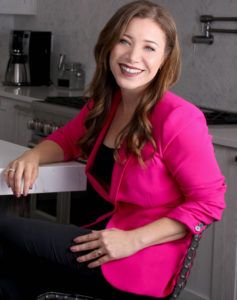Sharing glimmers: Tampa Bay Business and Wealth talks to local business leaders and influencers on their silver linings, during the uncertainty of this global pandemic.
There’s no denying one potential silver lining in the COVID-19 outbreak for all humanity: it’s a crisis we’re facing together, across the planet. Two Tampa Bay-based global companies weigh in on the positive aspects they’re taking away from the situation.
Carlos Baldor Jr., vice president of Tampa’s BST Global, a business management software firm, serving architects and engineers, with offices in Australia, the United Kingdom and the Netherlands, believes it has made the world feel closer. As Baldor explains, “before, I might not have been aware of the particular circumstances within the countries of our overseas offices, but now I am very in tune with each country’s challenges and their day-to-day developments. On a personal level, all our global managers connect daily with our employees, so we can really understand the situation on the ground, what a day-in-the-life feels like for everyone.” For Baldor, it comes back to the notion of family.
“We’re a family business, so we really look at each one of our employees as family. Virtual has allowed us to communicate more succinctly and also to reach each employee, making it easier to be more personal,” he says.
Like many companies, BST Global strongly encouraged video conferencing from the start of the outbreak and Baldor credits the increased opportunity to “see” each other to forge these stronger personal connections. “We had relied on conferencing before, but never really took advantage of video, yet there’s just things that can only be communicated when you’re engaging face to face, even if it’s virtually. It’s made a huge difference.”
Whether it’s virtually meeting colleagues’ children, or pets, on the outskirts of video conferencing – or hosting virtual company meetings of 180 people, where a face is finally put together with a name, it’s added a more personal feel, Baldor says.

For Monica Hernandez, CEO of MAS Global Consulting based in Tampa with offices in Denver and Medellin, Colombia, it’s about using global outreach as an opportunity to help small businesses, particularly those owned by women or minorities. As Hernandez explains, “although MAS Global Consulting has not been majorly impacted, some of our projects have been slowing down. But instead of letting people go, we’re trying to fill any extra time to use our talents for others. We’re a technology business, so we’ve really asked ourselves, how can we innovate during this downtime to create meaningful projects to help other businesses?”
Hernandez already has several success stories to share. She discovered a small specialty coffee company, Progeny Coffee, that directly works with Colombian farmers. Founded by a woman, and a fifth-generation coffee farmer, Progeny’s business model was set up business to business, selling wholesale to large corporations in Silicon Valley. They lost 95% of their revenue when businesses were shut down. “Basically, she wanted to switch her business model to enable the digital capabilities to take on more individual customers,” explains Hernandez, “reviving her business by taking on subscriptions from individuals. But, of course, she didn’t have the capital to take this step now with revenue suddenly cut off.”
MAS Global built a team of engineers to work for free to create the needed digital capabilities. Hernandez brushes off accolades, saying, “It’s great for everyone. We’re using our innovation, we’re helping them to create revenue so they can keep their employees which is good for individuals and for the economy, and of course, it’s great for the coffee farmers back in Colombia.”
“This is the time to be innovative, to really cultivate new ideas,” says Hernandez. “A lot of times you have those new ideas, but you’re rushing about without time to grow them.” MAS Global also has collaborated with displaced workers in Medellin, like a local seamstress struggling to find new orders: they requisitioned 750 homemade masks and had them delivered to a local nursing home. MAS also provided technical support to a Colombian NPO focused on helping disadvantaged girls from 3 – 18, Fundacion Angeles De Amor, so they can now accept donations internationally on their website.
“For a global company it’s been great to see our U.S. team, and our Colombian team, collaborating and working together for new solutions, internally or for our clients. This whole crisis has highlighted the need for solutions for health care: to quickly diagnose, to test and to trace – who is infected, who have they been in contact with — so technology plays a key role in helping with these immediate needs, especially small businesses,” Hernandez says. “Small businesses tend to be nimble, whereas a large company may have lots of resources but sometimes it takes longer for them to implement an idea and act quickly. We’re also looking into the healthcare industry to find ways to offer our technological expertise to work towards solutions in health care.”
On the personal side, Baldor and Hernandez agree that it’s an important time to strengthen relationships. For Baldor, that’s enjoying the companionship and new bonds forming between his four children, ages 22-12, all under the same roof for such an extended period of time. For Hernandez, it’s the chance to reach out to friends and colleagues she may have lost touch with, like renewing friendships in Texas, where she once lived. As Baldor concludes, “the tough times have really brought out the best in people, and we have a lot of people who have really stepped up. So that’s what I take away in any situation that kind of changes the norm: it’s an opportunity for people everywhere to step up.”
